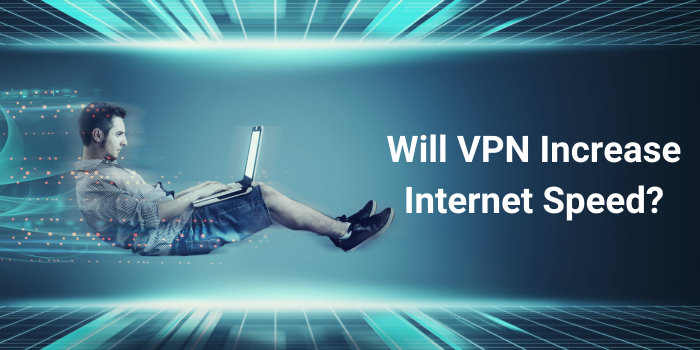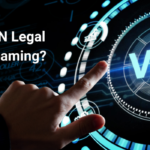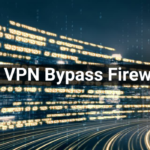The relentless pursuit of faster internet speeds has become integral to modern life. A sluggish internet connection can significantly impede productivity and enjoyment with the increasing demands of high-definition streaming, online gaming, and remote work. Virtual Private Networks (VPNs), renowned for their privacy and security benefits, have also garnered attention as potential speed enhancers. However, whether a VPN can boost your internet speed is more complex than a simple yes or no answer.
This in-depth manual explores the complex connection between VPNs and internet speed. By understanding how VPNs operate, the various factors influencing internet speed, and the specific conditions under which VPNs can potentially enhance performance, you can make informed decisions about whether a VPN is the right solution for your speed woes.
How VPN Works?
A Virtual Private Network (VPN) uses technology to establish a secure, encrypted pathway between your device and the Internet. Connecting to a VPN server redirects your internet traffic through this server, concealing your original IP address and securing your data to protect your online activities from unauthorized access.
- Connection Establishment: Upon initiating a VPN connection, your device establishes a secure link with a VPN server in a desired location. This connection is typically secured using robust encryption protocols.
- Data Encryption: All outgoing internet traffic from your device is encrypted using sophisticated cryptographic algorithms. This ensures that your data is unreadable to anyone intercepting it during transmission.
- Data Tunneling: The encrypted data is transmitted through the secure tunnel created by the VPN to the chosen VPN server. This tunnel acts as a virtual private network, protecting your data from exposure.
- Data Routing: The VPN server then forwards the encrypted data to its intended destination on the Internet. The server is an intermediary, masking your true IP address and location.
- Decryption: Once the data reaches its final destination, it is decrypted. The recipient can access the data as intended, while the encryption safeguards it during transit.
While enhancing privacy and security, this process introduces additional steps in the data transmission process that can impact internet speed. The encryption and decryption processes and the increased distance data may travel when routed through a VPN server can contribute to latency and reduced overall speeds.
What are the Reasons for Affecting Internet Speed?
Various elements determine the speed of your internet connection. It’s crucial to comprehend these factors to accurately evaluate how a VPN could affect it.
- Internet Service Provider (ISP): The quality of your internet service provider’s infrastructure is pivotal in determining your internet speed. Factors such as the type of internet connection (DSL, cable, fiber), network congestion, and the overall quality of service your ISP provides significantly impact your connection speed. Additionally, your chosen internet plan and the level of service you subscribe to will influence your available bandwidth.
- Physical Location: Geographical location can significantly impact internet speed. Factors such as distance from the internet backbone, the density of network infrastructure, and the overall digital divide between different regions can affect connection speeds. Due to limited infrastructure, rural areas often experience slower speeds than urban centers.
- Network Congestion: Heavy internet traffic, particularly during peak usage times, can lead to congestion, resulting in slower speeds for all users. This is especially common in densely populated areas or during events with high internet usage, such as streaming live events or online gaming tournaments.
- Device Hardware: The capabilities of your internet-connected devices can influence internet speed. Outdated or low-performance devices, such as older routers or Wi-Fi adapters, may need help to handle high-speed internet connections. Additionally, your computer’s or mobile device’s processing power can impact how efficiently it can handle data transfer.
- Online Activity: Your online activities can affect your perceived internet speed. Downloading large files, streaming high-definition video, or online gaming can consume significant bandwidth, leading to slower speeds for other activities. This is due to the competition for bandwidth among different applications.
Does a VPN Slow Down Internet Speed?
The short answer is that it can. While VPNs offer invaluable privacy and security benefits, encryption and additional data routing can introduce latency and reduce internet speed.
- Encryption Overhead: Encrypting and decrypting data requires computational resources, which can slightly delay data transmission. This overhead can be more noticeable on older or less powerful devices.
- Increased Distance: Connecting to a VPN server far from your physical location can increase the distance your data travels, potentially leading to higher latency. This is due to the longer time it takes for data packets to reach their destination and return.
- Server Load: If the VPN server you’re connected to is overloaded with users, it can slow down your connection as it struggles to handle the increased traffic. This is particularly noticeable during peak usage or when connecting to popular VPN servers.
- VPN Protocol: Different VPN protocols impact speed differently. Some protocols, like WireGuard, are known for their speed and efficiency, while others may introduce more overhead.
When Can a VPN Improve Internet Speed?
While it’s generally true that VPNs can slow down internet speed, there are specific scenarios where they might provide a performance boost:
- Overcoming ISP Throttling: Some internet service providers (ISPs) practice traffic shaping or throttling, deliberately reducing the speed of specific types of internet traffic, like video streaming or online gaming. By encrypting your traffic, a VPN can circumvent these limitations, which may result in better speeds for the affected activities.
- Accessing Faster Servers: If your ISP’s servers are congested or experiencing performance issues, connecting to a VPN server in a different location might provide faster internet connections. This can be particularly beneficial if you have limited options for internet service providers in your area.
Circumventing Geo-Restrictions: VPNs can circumvent geographical restrictions set by content providers, enabling you to access content that may be restricted in your area. Connecting to a VPN server in the content provider’s location can enhance access speeds by shortening the data’s travel distance.
How to Choose the Right VPN for Optimal Speed?
When choosing a VPN, take into account the following factors if having fast Internet is essential to you:
- Server Network: Make sure you select a VPN provider with an extensive network of servers distributed across various locations. This will enable you to choose a server nearest to your current location, reducing latency caused by distance. A broader selection of server options also enhances the likelihood of finding a less crowded server.
- VPN Protocol: Prioritize fast VPN protocols like WireGuard or IKEv2. These protocols are designed to minimize performance overhead while maintaining strong security. Avoid older or less efficient protocols that can impact speed.
- Server Load: Choose a VPN provider that offers real-time server load information. This allows you to select less crowded servers, reducing the chances of congestion-related slowdowns. Look for providers that display server load metrics to help you make informed choices.
- Avoid Free VPNs: Free VPN services often have limited server resources and may prioritize paid users, leading to slower speeds. Also, free VPNs usually have less stringent security measures, risking privacy. Investing in reputable paid VPNs and internet speed is multifaceted. While VPNs can introduce performance overhead due to encryption and additional data routing, they can also offer benefits in specific circumstances, such as overcoming ISP throttling or accessing faster servers. By understanding the factors influencing internet speed and carefully selecting a VPN provider, you can mitigate potential speed reductions and maximize the advantages of VPN technology.
Ultimately, the best way to determine the impact of a VPN on your internet speed is through thorough testing and experimentation. By comparing your connection speeds with and without a VPN under various conditions, you can decide whether a VPN is the right choice for your specific needs. When selecting a VPN service, you must consider your priorities, such as privacy, security, and speed.
What are the best VPNs for Increasing internet speed?
A VPN can significantly enhance internet speed, particularly if you encounter ISP throttling or geographical limitations. NordVPN, ExpressVPN, and CyberGhost VPN are three well-known choices recognized for their ability to improve speed. Let’s examine their main features and assess their effectiveness in enhancing internet performance.
NordVPN
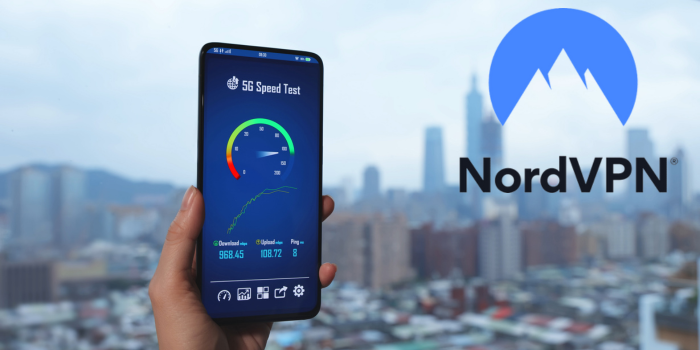
NordVPN’s combination of an extensive server network and the WireGuard protocol makes it a strong contender for speed enhancement. The Smart DNS feature provides an additional option for bypassing restrictions without sacrificing performance.
Critical Features for Speed Enhancement:
- Extensive Server Network: NordVPN’s vast server network allows you to choose a server closest to your physical location, minimizing latency and improving overall speed.
- WireGuard Protocol: NordVPN supports the WireGuard protocol, known for its speed and efficiency. It is a great choice for those who prioritize fast connections.
- Smart DNS: NordVPN’s Smart DNS feature allows you to bypass geo-restrictions without a VPN, potentially improving streaming or downloading speeds.
ExpressVPN
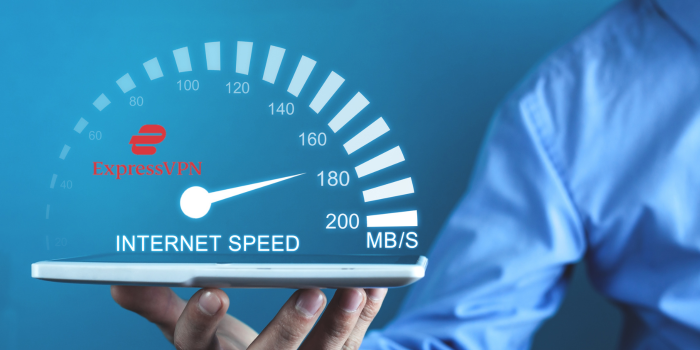
ExpressVPN’s optimized servers and split tunneling feature make it a good choice for those seeking to improve speed for specific activities. TrustedServer technology ensures that servers are maintained for optimal performance.
[affcoups id=”1357″]
Critical Features for Speed Enhancement:
- Optimized Servers: ExpressVPN has servers for specific activities, including streaming and downloading. These optimized servers can help reduce latency and improve performance for these tasks.
- Split Tunneling: This functionality lets you direct particular traffic through the VPN tunnel while circumventing others. It guarantees that only essential data is encrypted, which could enhance overall speed.
- TrustedServer Technology: ExpressVPN’s TrustedServer technology ensures that servers are regularly audited and reconfigured to maintain optimal performance.
CyberGhost VPN
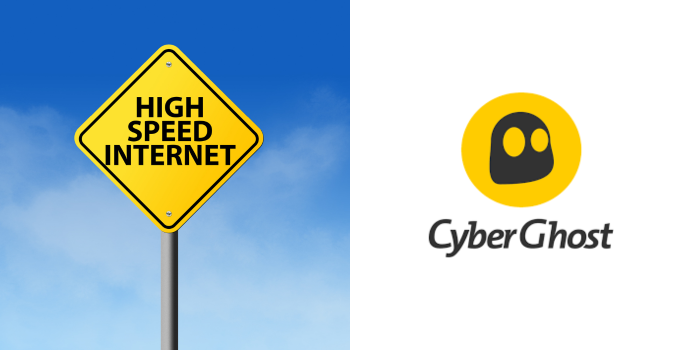
CyberGhost VPN’s dedicated streaming servers and automatic server selection make it a strong choice for improving streaming speeds. The no-logs policy helps minimize performance overhead.
[affcoups id=”1359″]
Critical Features for Speed Enhancement:
- Dedicated Streaming Servers: CyberGhost VPN offers dedicated streaming servers optimized for popular platforms like Netflix and Hulu, providing a smooth and fast streaming experience.
- Automatic Server Selection: CyberGhost VPN automatically selects the best server for your location and activity, ensuring optimal performance.
- No-Logs Policy: CyberGhost VPN’s strict no-logs policy doesn’t track or store your online activity, reducing the overhead that can slow down your connection.
Conclusion
In conclusion, VPNs’ impact on internet speed is a complex interplay of various factors. While VPNs can introduce additional latency and potentially slow down your connection, they can also offer benefits in specific scenarios, such as overcoming ISP throttling or accessing faster servers.
To determine whether a VPN is right for you and will improve your internet speed, consider your specific needs, evaluate the factors influencing your connection, and carefully select a VPN provider. Understanding the complexities of VPN technology and making well-informed decisions can help you optimize the advantages of VPNs while reducing any adverse effects on your internet speed.
How can I boost my Internet speed?
Several factors can influence your internet speed. Here are some tips to boost it up:
Check your internet plan: Ensure you’re subscribed to a plan that suits your needs.
Restart your modem and router: These steps help fix temporary connection problems.
Reduce network congestion: Avoid peak usage times or connect to less crowded Wi-Fi networks.
Optimize your devices: Keep your software and drivers updated.
Use a wired connection: Connect your device directly to the modem or router for a more stable connection.
Consider a VPN: While VPNs can sometimes slow down your Internet, they can also improve speeds in some instances, like bypassing ISP throttling.
Does VPN increase internet usage?
Yes, using a VPN slightly increases your internet usage. The encryption process that a VPN employs adds a small amount of data to your overall consumption. Generally, this increase is around 5-15%, often negligible for most users. However, if you’re on a limited data plan, it’s worth considering.
Does VPN improve streaming?
It depends. VPNs can both improve and degrade streaming quality. They can enhance streaming by bypassing ISP throttling and accessing geo-restricted content. However, they can also slow down streaming due to increased latency and encryption overhead. The impact depends on your VPN provider, server location, and internet connection.
Which VPN increases internet speed for free?
There needs to be a reliable free VPN that consistently increases internet speed. Free VPNs often have limited server resources, slow speeds, and data caps. Additionally, they might compromise your privacy by selling your data or injecting ads. Investing in a reputable paid VPN is generally a better option if you’re looking for a speed boost.

